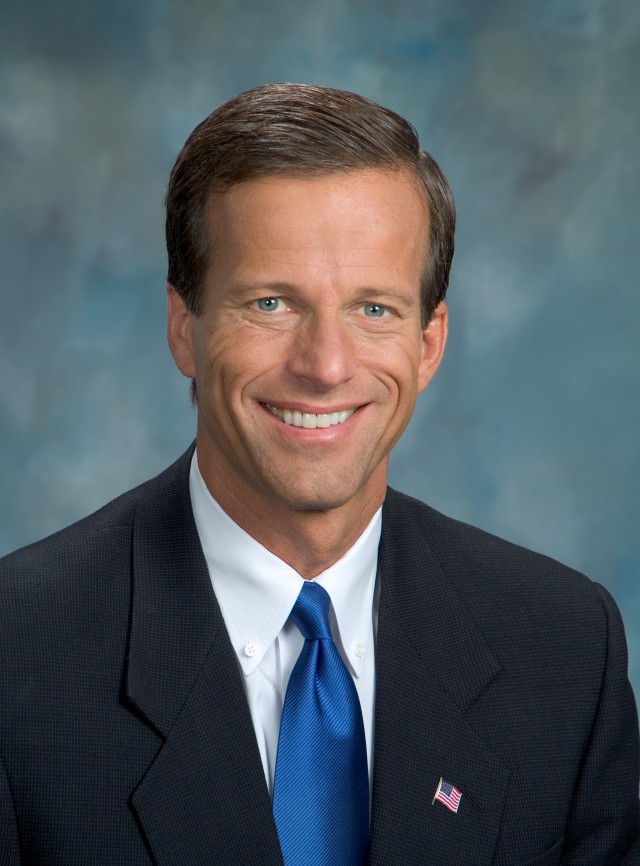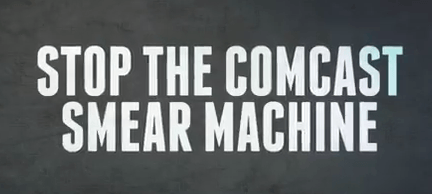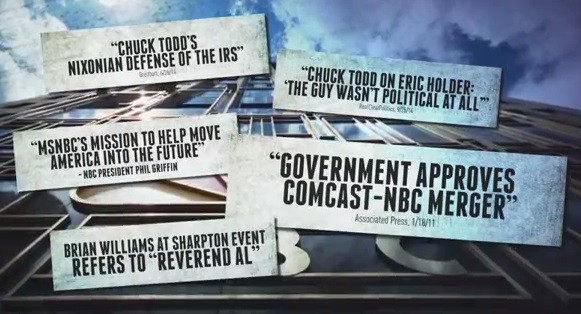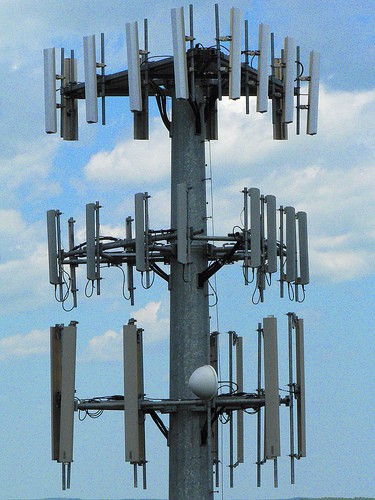
D.C.’s perpetually revolving door keeps on spinning.
A former Republican member of the Federal Communications Commission is calling on the federal agency to stop consideration of strong Net Neutrality rules and defer to a Republican drafted bill that would dramatically weaken Open Internet protections.
Robert McDowell said the FCC should defer to Congress and avoid adopting a “Depression era law designed to regulate phone monopolies” as the foundation for Net Neutrality enforcement.
“While Republicans and Democrats try to work out a deal, FCC Chairman Tom Wheeler should hit the pause button on next month’s vote and let the elected representatives of the American people try to find common ground,” he wrote in a Wall Street Journal op-ed Monday. “At the end of this constitutional process, all sides may be able to claim victory. It’s time to consider a different path — one that leads through Congress — to end the Net Neutrality fiasco. Although the legislative process can be perilous, Congress can provide all sides with a way out.”
McDowell’s comments fall tightly in line with the fierce lobbying campaign against Net Neutrality being run by companies like Comcast and AT&T.
That may not be surprising considering McDowell’s trip through the notorious “D.C. Revolving Door,” where ex-government employees go to work on behalf of the industries they formerly regulated.

McDowell
After retiring from the FCC, McDowell landed a position with the law firm Wiley Rein LLP, a corporate favorite for litigation against government oversight and regulatory public policies. It was Wiley Rein LLP that represented Comcast in 2010, successfully arguing the FCC had no right to oversee Comcast’s Internet service under the Section 706 “information service” framework still at issue today.
The D.C. Circuit unanimously ruled, “the Commission failed to tie its assertion of ancillary authority over Comcast’s Internet service to any ‘statutorily mandated responsibility,'” a long-winded way to say that the FCC’s reliance on its limited authority to oversee broadband as an “information service” in reality gave the FCC almost no right of oversight at all.
Ironically, that case is what prompted Internet activists to demand the FCC reclassify broadband as a “telecommunications service” under Title II to give the FCC the authority it needs to oversee broadband providers, exactly what McDowell does not want.
The ruling (emphasis ours):
Turning to ancillary authority, the Court rejected each of the statutory provisions on which the Commission relied. Relying on a number of Supreme Court precedents, the Court held that “policy statements alone cannot provide the basis for the Commission’s exercise of ancillary authority,” id. at 22, and thus rejected the Commission’s reliance on Section 230(b) and Section 1 of the Communications Act and Section 706 of the Telecommunications Act of 1996. The Court explained that allowing congressional policy to create “statutorily mandated responsibilities” sufficient to support the exercise of ancillary authority “would virtually free the Commission from its congressional tether.” Id. at 23. The Court then rejected the remaining statutory provisions that “at least arguably delegate regulatory authority to the Commission,” id. at 16, on a variety of substantive and procedural grounds, including waiver.
Few media sources have bothered to disclose that McDowell’s new employer counts among its current clients two of the biggest Net Neutrality foes in the industry: AT&T and Verizon.


 Subscribe
Subscribe
 Current FCC rules have allowed traffic shenanigans from ISPs like Comcast that don’t mind slowing their customers’ Netflix experience to a crawl until the streaming company opens its checkbook. The FCC’s anticipated new proposal would strictly forbid any creative end-runs around the concept of paid fast lanes Comcast can get away with today.
Current FCC rules have allowed traffic shenanigans from ISPs like Comcast that don’t mind slowing their customers’ Netflix experience to a crawl until the streaming company opens its checkbook. The FCC’s anticipated new proposal would strictly forbid any creative end-runs around the concept of paid fast lanes Comcast can get away with today.
 A conservative group has launched an assault on the Comcast-Time Warner Cable merger, accusing the cable company of cozying up to the Obama Administration and the political left in its news coverage to win corporate favors.
A conservative group has launched an assault on the Comcast-Time Warner Cable merger, accusing the cable company of cozying up to the Obama Administration and the political left in its news coverage to win corporate favors. “We intend to demonstrate to Comcast/NBC/Universal that [conservatives] have not thrived for six decades – we have not come all this way – just to cede our national and, indeed, global victories for the cause of freedom to a group of grasping corporate operatives seeking commercial and political power. So, the focus of the conservative movement needs to be not on the politicized and partisan faces of NBC or the hired slanderers at MSNBC – criticizing them just makes them more important than they are – but on the corporate ‘suits in the suites’ who are the truly culpable parties.”
“We intend to demonstrate to Comcast/NBC/Universal that [conservatives] have not thrived for six decades – we have not come all this way – just to cede our national and, indeed, global victories for the cause of freedom to a group of grasping corporate operatives seeking commercial and political power. So, the focus of the conservative movement needs to be not on the politicized and partisan faces of NBC or the hired slanderers at MSNBC – criticizing them just makes them more important than they are – but on the corporate ‘suits in the suites’ who are the truly culpable parties.”
 The proposed bill also carefully protects existing providers from pressure to upgrade their networks.
The proposed bill also carefully protects existing providers from pressure to upgrade their networks. The group urged the Missouri legislature to reject the bill.
The group urged the Missouri legislature to reject the bill.